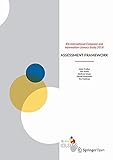IEA International Computer and Information Literacy Study 2018 Assessment Framework.
By: Fraillon, Julian.
Contributor(s): Ainley, John | Schulz, Wolfram | Duckworth, Daniel | Friedman, Tim.
Material type: BookPublisher: Cham : Springer International Publishing AG, 2019Copyright date: �2019Edition: 1st ed.Description: 1 online resource (77 pages).Content type: text Media type: computer Carrier type: online resourceISBN: 9783030193898.Genre/Form: Electronic books.Online resources: Click to View
BookPublisher: Cham : Springer International Publishing AG, 2019Copyright date: �2019Edition: 1st ed.Description: 1 online resource (77 pages).Content type: text Media type: computer Carrier type: online resourceISBN: 9783030193898.Genre/Form: Electronic books.Online resources: Click to View | Item type | Current location | Collection | Call number | Copy number | Status | Date due | Item holds |
|---|---|---|---|---|---|---|---|
 E-book
E-book
|
IUKL Library | Subscripti | 1 | Available |
Intro -- Foreword -- Contents -- CHAPTER 1: Introduction -- 1.1 Overview -- 1.2 Purposes of ICILS -- 1.3 Purpose of the ICILS assessment framework -- 1.4 Background to the study -- 1.5 Computer and information literacy -- 1.6 Computational thinking -- 1.7 Recent education policy developments related to CIL and CT -- 1.8 Research on the use of digital technologies in learning -- 1.9 Research questions -- 1.9.1 Computer and information literacy -- 1.9.2 Computational thinking -- 1.10 Participants and instruments -- 1.10.1 Participants and sampling -- 1.10.2 Instruments -- CHAPTER 2: Computer and information literacy framework -- 2.1 Overview -- 2.2 Defining computer and information literacy -- 2.3 Revising the structure of the computer and information literacy construct -- 2.4 Structure of the ICILS 2018 computer and information literacy construct -- 2.5 Strands and aspects of computer and information literacy -- 2.5.1 Strand 1: Understanding computer use -- Aspect 1.1 Foundations of computer use -- Aspect 1.2 Computer use conventions -- 2.5.2 Strand 2: Gathering information -- Aspect 2.1: Accessing and evaluating information -- Aspect 2.2: Managing information -- 2.5.3 Strand 3: Producing information -- Aspect 3.1: Transforming information -- Aspect 3.2: Creating information -- 2.5.4 Strand 4: Digital communication -- Aspect 4.1: Sharing information -- Aspect 4.2: Using information responsibly and safely -- CHAPTER 3: Computational thinking framework -- 3.1 Overview -- 3.2 Defining computational thinking -- 3.3 Structure of the ICILS 2018 computational thinking construct -- 3.4 Strands and aspects of computational thinking -- 3.4.1 Strand 1: Conceptualizing problems -- Aspect 1.1: Knowing about and understanding digital systems -- Aspect 1.2: Formulating and analyzing problems -- Aspect 1.3: Collecting and representing relevant data.
3.4.2 Strand 2: Operationalizing solutions -- Aspect 2.1: Planning and evaluating solutions -- Aspect 2.2: Developing algorithms, programs and interfaces -- CHAPTER 4: Contextual framework -- 4.1 Overview -- 4.2 Classification of contextual factors -- 4.3 Contextual levels and variables -- 4.3.1 The wider community context -- Antecedent variables at the level of the wider community -- Process-related variables -- 4.3.2 School/classroom context -- Antecedent variables at the school/classroom level -- Process-related variables at the school/classroom level -- 4.3.3 Home context -- Antecedent variables related to the home environment -- Process-related variables related to the home environment -- 4.3.4 Individual context -- Antecedent variables at the individual level -- Process-related variables at the individual level -- CHAPTER 5: ICILS instruments -- 5.1 Test instrument overview -- 5.1.1 Test interface -- 5.2 The ICILS test instrument design -- 5.2.1 CIL test modules -- 5.2.2 CT test modules -- 5.2.3 Test module rotation -- 5.3 Types of assessment task: CIL -- 5.3.1 Task type 1: Information-based response tasks -- 5.3.2 Task type 2: Skills tasks -- 5.3.3 Task type 3: Authoring tasks -- 5.4 Types of assessment task: CT -- 5.4.1 Task type 4: Nonlinear systems transfer tasks -- 5.4.2 Task type 5: Simulation tasks -- 5.4.3 Task type 6: Visual coding tasks -- Visual coding test environment -- Algorithm construction tasks -- Algorithm debugging tasks -- 5.5 Mapping test items to the CIL and CT frameworks -- 5.6 The ICILS student questionnaire and context instruments -- 5.6.1 Student questionnaire -- 5.6.2 Teacher questionnaire -- 5.6.3 School questionnaires -- Principal questionnaire -- ICT coordinator questionnaire -- 5.6.4 National contexts survey -- References -- APPENDIX: Organizations and individuals involved in ICILS 2018.
International study center -- Staff at ACER -- International Association for the Evaluation of Educational Achievement (IEA) -- Staff at the IEA Amsterdam -- Staff at the IEA Hamburg -- SoNET Systems -- Staff at SoNET Systems -- ICILS sampling referee -- National research coordinators -- Chile -- City of Moscow (Russian Federation) -- Denmark -- Finland -- France -- Germany and North-Rhine Westphalia (Germany) -- Italy -- Kazakhstan -- Luxembourg -- Portugal -- Republic of Korea -- United States of America -- Uruguay.
Description based on publisher supplied metadata and other sources.
Electronic reproduction. Ann Arbor, Michigan : ProQuest Ebook Central, 2023. Available via World Wide Web. Access may be limited to ProQuest Ebook Central affiliated libraries.


There are no comments for this item.